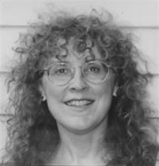Professor Carol E. Cleland
The NewScientist article Second Genesis: The search for shadow life said
“While some researchers are attempting to create brand new life in the lab, others are searching for alien life on Mars and, eventually, elsewhere in the solar system. This burgeoning field of astrobiology has a less well-known offshoot right here on Earth: the search for a ‘shadow biosphere’ — a second, independent form of life unrelated to sort we know.Sceptics might scoff that shadow life could pass unrecognized for so long, but Davies and his collaborators have a simple rejoinder: we’ve never looked properly. Such life would probably take the form of single-celled microbes, so we would not expect naturalists to spot it casually like some rare parrot. And the techniques microbiologists use to detect life — staining for DNA, sequencing DNA, and culturing microbes in the lab — assume that the target microbes have the normal biochemistry.
‘They couldn’t detect an alternative form of microbial life,’ says Carol Cleland, a philosopher of science and astrobiologist at the University of Colorado in Boulder. Given that fewer than 1 per cent of microbes have been cultured and described, there is plenty of room for shadow life to be living right under our noses.”
Carol E. Cleland, Ph.D. is Professor, Department of Philosophy, Center for Astrobiology, University of Colorado.
Her research is focused in the areas of philosophy of science, philosophy of logic, and metaphysics. She is particularly interested in historical science, astrobiology, the theory of computation, and the nature of causation. She has written articles on causation, space and time, supervenience, events, standards of evidence in science, the methodology of historical and experimental science, the problem of defining “life”, the Church-Turing thesis, effective procedures, and hypercomputation.
Carol authored the innovative Amazon download Laws of Nature: An article from: The Review of Metaphysics, authored Methodological and Epistemic Differences Between Historical Science and Experimental Science, Historical science, experimental science, and the scientific method, On effective procedures, and The concept of computability, and coauthored The possibility of alternative microbial life on Earth and Defining “Life”. Read the full list of her publications!
She is a member of the NASA Astrobiology Institute and Co-Investigator in the Center for Astrobiology at the University of Colorado, Boulder (1998-present). She is Chair of the Philosophy Department’s Committee on the History and Philosophy of Science. She was a Visiting Researcher at the Centro de Astrobiologia in Madrid, Spain (11/2002–4/2003).
Carol earned her B.A. in Mathematics at the University of California at Santa Barbara in 1973. She earned her Ph.D. in Philosophy at Brown University in 1981 and was a Postdoc in Philosophy and Computer Science, at the Center for Studies in Language and Information (CSLI), Stanford University, from 1985 to 86.
